
To subscribe to the fortnightly ALGA News, please click here.
-
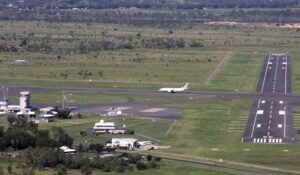
Regional airports nationwide have been awarded nearly $30 million in grants under Round 2 of the Federal Government’s Regional Airports Program. The 89 projects awarded grants include: Charters Towers Regional Council for airstrip, fencing and other upgrades at Charters Towers Airport in Queensland ($400,000); Kempsey Shire Council for fencing to reduce wildlife intrusion at Kempsey+
Posted 6 August, 2021 -

Nearly six in 10 local government CEOs say the financial sustainability of their councils was negatively impacted by Covid-19, a new survey shows. However, the survey also shows the pandemic has provided the impetus for many councils to “think outside of the box” about how to maximise revenue, keep costs down, and “sweat” their assets+
Posted 6 August, 2021 -

The South East Queensland Council of Mayors (SEQ) did local government proud this week. Six years after they began exploring a Brisbane regional bid for the Olympic and Paralympic Games, the Council of Mayors (working with the state and federal governments) have delivered spectacularly for their communities. The basis for the bid was always about+
Posted 23 July, 2021 -
Infrastructure Australia’s revised Assessment Framework taking into account sustainability and resilience outcomes has been published. The broadened assessment criteria will allow for a “more holistic review of a proposal’s potential benefits, in addition to those that can be monetised through traditional cost-benefit analysis”. IA says the revisions respond to input from stakeholders, align with state+
Posted 23 July, 2021 -
Regional motorists are being urged to give agricultural vehicles extra space on the road ahead of this year’s sowing and harvest seasons. National Heavy Vehicle Regulator CEO Sal Petroccitto said the increase in people moving to regional communities in the past year meant more traffic for agricultural vehicle drivers to safely navigate during peak activity+
Posted 23 July, 2021 -
The 2020-211 agricultural census has begun as part of efforts to build a better picture of primary production at a national, state, and regional level. Over 100,000 farms are being included in this census to ensure information collected is reliable and can provide the Australian Bureau of Statistics with the required level of detail to+
Posted 23 July, 2021 -
Councils can now acquire comprehensive litter data for their respective local government areas with the Local Government Litter Index (LGLI). Offered by Keep Australia Beautiful (KAB), the LGLI is based on the KAB National Litter Index (NLI) with a range of new benefits and features. The KAB NLI was developed in 2005 as a common+
Posted 23 July, 2021 -
Projects in 34 local government areas have secured funding through the third round of the federal government’s Murray-Darling Basin Economic Development Program. The 51 projects range across the hospitality, tourism, development, and Indigenous cultural sharing sectors, and were selected to help Basin communities address challenges onset by drought, demographic change, and commodity price change. Grant+
Posted 23 July, 2021 -
Four northern NSW regional airports have been awarded $1.2 million for runway upgrades and other projects under Round 2 of the Regional Airports Program. The upgrades at the Tamworth, Armidale, Inverell, and Quirindi airports are the first Round 2 projects to be announced, with further notifications expected to follow. In Armidale, $300,000 in federal funding+
Posted 23 July, 2021 -
A joint project to make critical telecommunications more bushfire resilient has led to a start on upgrades for two sites in regional Victoria. The upgrades follow a joint CSIRO/Optus research project analysing where there is risk of damage to the network and where upgrades could reduce their vulnerability to future bushfire events. Optus is now+
Posted 23 July, 2021 -
A Commonwealth initiative supporting local job-creation has opened for applications, with up to $1 million available for innovative projects. The $50 million National Priority Fund will finance proposals “that address structural and other barriers to attract, recruit and retain Australian job seekers and workers in employment and/or complement job creation initiatives”. The fund is part+
Posted 23 July, 2021 -
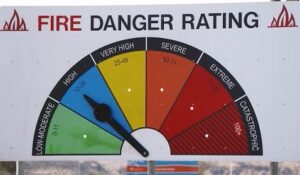
Testing of Australia’s redesigned fire danger forecasting system has begun in north Queensland, Western Australia, and the Northern Territory. The operational trial of the Australian Fire Danger Rating System (AFDRS) program began on 1 July and will be extended to southern Australia in October when the fire season begins. In the most southerly areas, the+
Posted 23 July, 2021 -
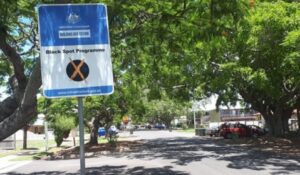
Over 200 dangerous crash sites on NSW, Victoria, SA, Tasmania, and WA roads will get Black Spot Program fixes in 2021-22. Program funding of $86.9 million was announced this week, with the biggest share set to flow to councils in Victoria and NSW. Queensland Black Spot funding of $20.8 million to improve 67 dangerous crash+
Posted 23 July, 2021 -
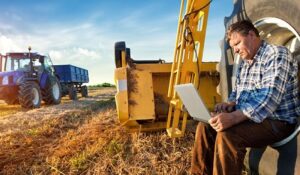
Many local governments and communities lack the resources to identify appropriate solutions to local telecommunications problems, a new issues paper says. Published as a prelude to the 2021 Regional Telecommunications Review, the paper canvasses issues around adequacy, opportunity, and awareness of telco services in both rural, regional and remote areas of Australia. Public consultations for+
Posted 23 July, 2021 -

Thank you to local governments around the nation who have pulled out all the stops to aid the national COVID recovery process, including repeatedly offering to support the vaccination rollout. Given councils have been providing community immunisation services for decades, state and territory health agencies ought to have snapped up offers of local government facilities+
Posted 16 July, 2021 -
NSW childcare providers are being offered federal financial support to waive gap fees for parents keeping their children home because of Covid restrictions. The gap fee is the difference between the Child Care Subsidy (CCS) the federal government pays to a service and the remaining fee paid by the family. From Monday, July 19, childcare+
Posted 16 July, 2021 -
Australia’s ability to deliver social infrastructure post-Covid will be examined in depth at a Melbourne conference later this month. Convened by the Australian Housing and Urban Research Institute, the day-long hybrid event will also look at urban transport options during a pandemic and population dynamics in a post-coronavirus context. Click here to register for the+
Posted 16 July, 2021 -
Rural shire council staff are being sought to take part in a leadership program to raise awareness about how regional Australia could benefit from international trade, investment, and tourism. The program will consist of six interactive webinars designed to generate ideas on how shire councils might capitalise on these as part of their Covid-19 recovery+
Posted 16 July, 2021 -
A draft strategy to build a nationally sustainable supply of native seed to enable environmental disaster recovery has gone on public exhibition. Developed by Greening Australia as part of the national response to the 2019-20 bushfires, the 10-year native seed and landscape restoration strategy (Project Phoenix) is a roadmap for growing the sector. As well+
Posted 16 July, 2021 -
The Federal Government’s recently revised national strategy to protect threatened species has moved to the public consultation phase. The Threatened Species Strategy 2021-30 was announced in May and calls for a more coordinated approach to culling feral pest animals and weeds that are pushing native species to extinction. It also proposes the deployment of new+
Posted 16 July, 2021 -
The Productivity Commission will hold public hearings in Sydney, Canberra, and Melbourne from 19 July as part of its “right to repair” inquiry. The commission has been asked to look at the barriers and enablers of competition in repair markets and the costs and benefits of a regulated right to repair, including facilitating access to+
Posted 16 July, 2021 -
A new federal parliamentary committee inquiry into how to reduce trauma and deaths on Australian roads will focus on heavy vehicles and the gig economy. The Joint Select Committee on Road Safety will “investigate and identify opportunities to improve road safety programs and policy; embed road trauma prevention across agencies; and reduce road trauma in+
Posted 16 July, 2021 -
Voting options for NSW’s local government elections are being widened as authorities try to bring a Covid-19 outbreak in Sydney under control. Changes to local government regulations announced on 9 July will allow for an online option under similar circumstances to postal voting, along with broadened pre-poll eligibility for all electors, and an expansion of+
Posted 16 July, 2021 -

The City of Cockburn will install a fringing reef off a beach south of Fremantle in what it is describing as a unique coastal management trial. Engineered reef modules totalling about 100 metres in length will be anchored 50m offshore at the northern end of C.Y. O’Connor Beach in early 2022 to break down wave+
Posted 16 July, 2021 -
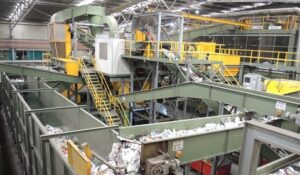
The Federal and Queensland Governments have agreed to invest $20 million each in the Recycling Modernisation Fund (RMF). With Queensland industry set to match that $40 million amount, there will be combined $80 million available through the RMF to fund new plastic, glass and tyre recycling infrastructure upgrades across the state. Deputy Premier and Minister+
Posted 16 July, 2021 -

National shortages of civil and transport engineers, urban and regional planners, landscape gardeners, and construction project managers are forecast to last well into the future. The 2021 Skills Priority List compiled by the National Skills Commission and released last week also reveals a national shortage of surveyors, arborists, childcare workers, aged or disabled carers, and+
Posted 16 July, 2021 -

Local government’s willingness and capacity to step up on behalf of local businesses and local communities has again been to the fore this week. Responding to current COVID lockdowns, councils in Brisbane and Sydney put additional support measures in place to protect local jobs and to support local businesses. Councils in all states and territories+
Posted 9 July, 2021 -
The City of Newcastle Council will consider a state government-backed plan to mine sand offshore from Stockton Beach to repair erosion damage. It follows a six-week exploration program by the NSW Government to locate three offshore sand deposits to replenish the beach north of Newcastle. The exploration data will now go to Newcastle Council for+
Posted 9 July, 2021 -
The Foreign Arrangements Taskforce is thanking all councils for their engagement with the Foreign Arrangements Scheme over the past six months. Efforts to ensure local governments meet their obligations under the Scheme are much appreciated, and the arrangements notified to the Department of Foreign Affairs and Trade (DFAT) demonstrate the breadth of Australia’s international engagement+
Posted 9 July, 2021 -
ICLEI Oceania is inviting local government councillors and city practitioners to a webinar exploring the use of nature-based solutions in urban planning. Nature-based solutions (NBS) are broadly defined urban planning interventions based on nature and ecological functions to address societal challenges, such as climate change adaptation and mitigation, population health, food security, and natural disasters.+
Posted 9 July, 2021 -
Regional Drought Resilience Planning and Farm Business Resilience Planning programs have been rolled out in Western Australia. Federal Agriculture Minister David Littlepround said on Sunday that $1.3 million has been set aside to support partnerships of WA councils, regional organisations, communities, industries and farmers to develop regional drought resilience plans. A further $2.2 million will+
Posted 9 July, 2021 -
The City of Hobart Council has begun enforcing a by-law prohibiting takeaway food businesses from using single-use plastics. The city council enacted the by-law in March 2020 but allowed a year’s grace for traders to transition their supplies and for community education and awareness-raising. Businesses that provide or sell food in single-use plastic packaging in+
Posted 9 July, 2021 -
The World Economic Forum is urging cities to “close the loop on water use” to insulate communities from future climate-related shocks. In the first in a series of papers to highlight new ways of thinking about global water resources, the WEF says increasing water stress due to population increases, global warming, and climate change poses+
Posted 9 July, 2021 -
Feedback from local governments is being sought to build a common understanding of shared responsibilities for developing and delivering drought support. This work by the federal Department of Agriculture, Water and the Environment (DAWE) is intended to drive an integrated approach to drought and to inform future policies that ensure all communities are well prepared+
Posted 9 July, 2021 -
The National Strategic Plan for Asbestos Awareness and Management 2019-23 establishes a framework for all levels of government to work together to effectively deal with the harmful legacy of asbestos in homes, workplaces, and the environment. The plan aims to eliminate asbestos-related diseases in Australia by preventing exposure to asbestos fibres. This article by the+
Posted 9 July, 2021 -
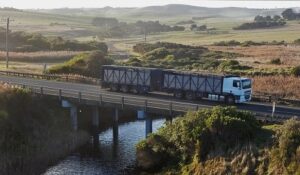
Local government road managers will be able to assess up to 1000 bridges, roads and culverts after a $12.1 million funding announcement this week. The new Commonwealth money will go to support a second phase of the Strategic Local Government Asset Assessment Project (SLGAAP). Established by the National Heavy Vehicle Regulator (NHVR) in 2019 with+
Posted 9 July, 2021 -

Communities in areas badly impacted by the 2019-20 Black Summer bushfires can apply for a share of a new $280 million federal grants program. The Black Summer Bushfire Recovery Grants program is prioritising recovery and resilience projects, and has been enabled by a lower-than-expected take-up of programs under the $2 billion National Bushfire Recovery Fund.+
Posted 9 July, 2021 -
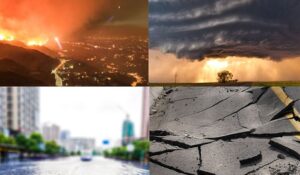
The Federal Government has confirmed funding of $85 million over 10 years to establish the Natural Hazards Research Australia (NHRA) centre. The centre will deliver “evidence-based research to better inform natural disaster preparation and to develop technological solutions to mitigate risks”. A series of workshops and meetings with potential end-users and research partners are planned+
Posted 9 July, 2021 -

We learned this week, via the latest Intergenerational Report, that there are now more people in work than before COVID-19, with a significantly higher participation rate. Our sector can rightly hold its head high for helping engineer this remarkable jobs turnaround. Local governments supported communities through the worst of the pandemic before quickly pivoting to+
Posted 2 July, 2021 -
The federal government is rolling out new Relationship Authorisation Manager (RAM) features as part of its commitment to providing safe and secure online services. RAM emails will now issue from noreply@authorisationmanager.gov.au Local government staff are being advised to add this email address to their “safe” or “preferred sender” so they receive future communications. Councils can+
Posted 2 July, 2021 -
Former Australian Local Government Association (ALGA) Vice President Keith Rhoades will not be a candidate in September’s NSW council elections. His departure marks the end of a 30-year career in local government. Cr Rhoads was first elected to the Coffs Harbour City Council in 1991. He was elected deputy mayor in 2000 and mayor in+
Posted 2 July, 2021 -
Tasmania councils will be able to develop regional drought resilience plans with rural organisations, communities and farmers under new programs announced last Sunday. The initiatives – the $9.85 million Regional Drought Resilience Planning program and the $16 million Farm Business Resilience program – are aimed at identifying how to manage through droughts and build resilience+
Posted 2 July, 2021 -
The City of Marion Council has partnered with an Adelaide software developer to provide real-time data on its urban forest to interested residents. The council is planting nearly 4000 trees each year and 2800 reserve trees over the next seven years and believes that providing real-time data in an interactive map will allow it to+
Posted 2 July, 2021 -
Councils are being invited to help prepare a snapshot of how policymakers and developers are improving the sustainability of urban infill and greenfield developments. To that end, a survey is being disseminated to all professions involved in planning, design and construction of residential developments, with feedback being collated to help improve urban design and housing+
Posted 2 July, 2021 -
A new grant program to allow regional multi-purpose residential aged care providers to carry out minor capital works has opened. The federal government program will disburse $40 million over two years to reinforce multi-purpose services (MPS) and follows recommendations from the Royal Commission into Aged Care Quality and Safety. Australia has 179 MPS in outer+
Posted 2 July, 2021 -
Disaster assistance has been made available to help communities in the Shire of Exmouth recover from damage caused by severe flooding in early June. Assistance is being provided through the jointly-funded Commonwealth-State Disaster Recovery Funding Arrangements (DRFA) to address significant flood damage to roads and infrastructure across the Exmouth area caused by 24 hours of+
Posted 2 July, 2021 -
Continuing bushfire recovery efforts in NSW have been boosted with $283 million in federal and state funding for 195 projects. The money is being provided through Stage Two of the Bushfire Local Economic Recovery Fund, with $103 million earmarked for tourism support and economic development and almost $100 million for community and social recovery. Another+
Posted 2 July, 2021 -
More Australians are choosing to live in regional areas, and the Covid-19 pandemic has accelerated this trend, new data shows. The inaugural Regional Australia Institute-CBA Regional Movers Index shows population movements from Australian capital cities to regional areas rose by seven percent from March 2020 to March 2021 – helping to drive net regional migration+
Posted 2 July, 2021 -
Making voting compulsory in council elections will help bring about gender parity in local government, a new report says. The recommendation is one of 33 contained in a report prepared by Australian Local Government Women’s Association (Victoria branch) national vice president Coral Ross. Ms Ross, a former City of Boroondara councillor (and Australian Local Government+
Posted 2 July, 2021 -
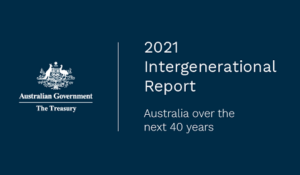
Local government needs to be involved in decision-making about services, infrastructure, and population growth management, the Federal Treasury says. The 2021 Intergenerational Report released by Federal Treasurer Josh Frydenberg this week points to a decline in Australia’s population growth triggered by Covid-19 border closures, but projects the population will continue growing faster than most other+
Posted 2 July, 2021 -
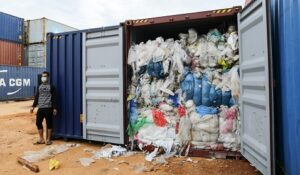
Industry players say insufficient capacity to deal with extra recyclable plastics generated by a halt in exports may lead to more plastics being landfilled. As of 1 July, mixed plastic can no longer be sent overseas for processing. Plastic waste sorted into single resin or polymer types can continue being exported, but it too will+
Posted 2 July, 2021 -
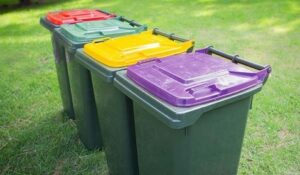
Victoria’s state government has earmarked $127 million in funding to help councils to move to a four-bin household waste and recycling system. The new system will add a purple bin for glass recycling, as well as green for food organics and garden waste, yellow for mixed recycling, and red for rubbish. The Victorian government wants+
Posted 2 July, 2021


